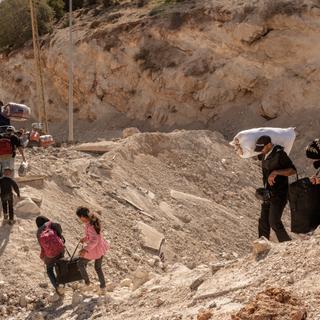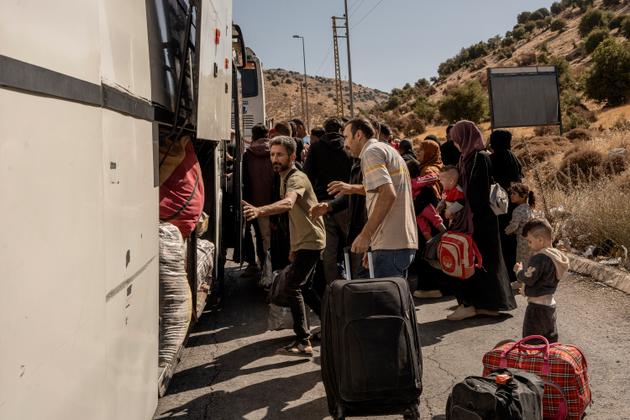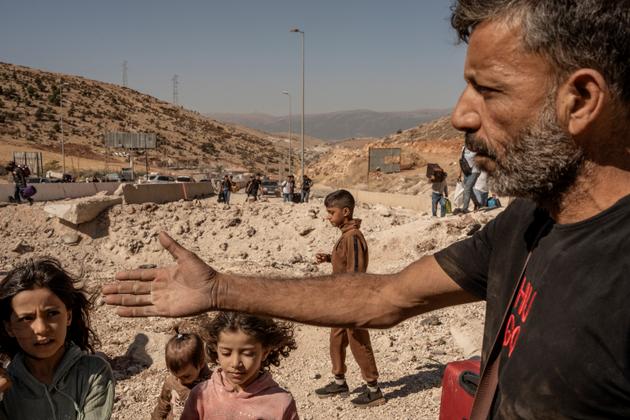


'The war sent us to Lebanon, and now it's sending us back to Syria': Displaced people's stories at the Masnaa border crossing
FeatureOver the past two weeks, some 300,000 people, mostly Syrians, have taken the main road to Damascus, part of which was destroyed by a strike. This has made access very difficult for the elderly fleeing Israeli bombings.
"You can still drive for another 2 kilometers." At the last Lebanese checkpoint, the officer, with a rote gesture, pointed toward a deep crater that has torn up the freeway, which has halted vehicles attempting to reach neighboring Syria. After a series of Israeli strikes targeted the area around the Masnaa border crossing on October 4, the main route to the Syrian capital has become impassable. Thousands of displaced people, mostly Syrians, have nevertheless continued to use it, determined to cross the border, at any cost, to escape the Israeli bombings. They had decided to do so as an emergency measure, as many of them had settled in the poorer regions of southern Lebanon, in the southern suburbs of Beirut or in the Bekaa plain: The regions that have been most ferociously attacked by Israeli air force. Over 300,000 Syrian and Lebanese people have crossed into Syria over the last two weeks.

On the morning of Sunday, October 6, Roqya's exhausted eyes looked out over the road ahead. The first stage will take her to the first vans from Syria, which, for $20 (€18), would pick up displaced people and take them to the Syrian border crossing, located 4 kilometers away. At her feet lay what remained of the 11 years she had spent in Lebanon: some mattresses and a few bags. In the early hours of the morning, after another bombing, the Syrian woman from Aleppo had decided to hit the road with her six children, leaving Gazieh, a town some 40 kilometers south of Beirut, behind them. "Whole apartment buildings and houses collapsed under the strikes, we had to leave, or we were going to die," she described. "I have to get to my in-laws. I don't know how we're going to do it or what it's going to cost us," she said, dreading the second part of the journey ahead. Her husband, Ahmad, a farm worker, has chosen to stay in Lebanon. He cannot return to Syria, a country he had fled to escape military service.
Hundreds trudged along under the blazing sun, with strollers tucked under their arms or pulling wheeled suitcases that shook as they went over the rocky terrain. Elderly people were carried over obstacles by the strength of people's arms; an oxygen tank was passed from hand to hand; further on, teenage girls carried their two cats in a cardboard box.

"The war sent us to Lebanon, and now it's sending us back to Syria," said Ali, in his fifties, with resignation, as he sweated through carrying a dozen suitcases across the broken ground. He, too, had set off from Ouzai, a neighborhood in the southern suburbs of Beirut, in the early hours of the morning. He had been living there with his family since 2014. "We stayed until the end, but the air strikes are too powerful." However, returning to al-Bukamal, their hometown in eastern Syria, was out of the question: It was now "controlled by the Iranians" and they had already lost everything there, he pointed out. A new period of exile, their third in 10 years, awaited them.
You have 61.91% of this article left to read. The rest is for subscribers only.
